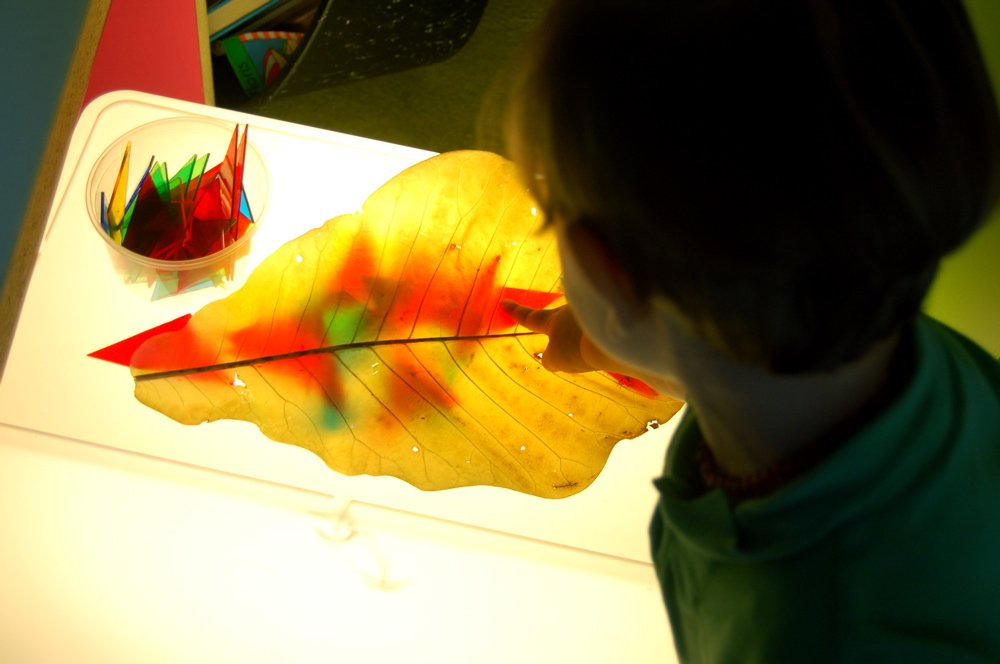Nature Art Lab
Fostering Creativity & Connection with the Natural World
The Nature Art Lab project was designed to foster children’s creativity, curiosity, and connection with nature through hands-on material explorations. The project took place over four months and included the following:
Designing and setting a 120m2 creative space.
Developing learning zones.
Facilitating playful prompts and invitations.
Professional development for teachers.
An exhibition of a local artist and all the material explorations.
Children could move throughout the entire space as they wished, and the facilitators encouraged them to explore and experiment with all materials and tools available in each zone. Children were also encouraged to collaborate and share their ideas, fostering a sense of community and teamwork.
The different zones provided children various experiences and learning opportunities, allowing them to engage in creative expression, scientific exploration, physical activity, and more. By providing a variety of different zones, children with other interests and strengths were able to find activities that they enjoyed, and that suited their learning styles.
Making Zone: This zone was set up with various materials such as clay, paper, sticks, and leaves that children could explore. It also included building blocks and animals, allowing children to create an experimental natural world.
Designing Zone: This zone was set up with many design tools, such as pencils, paper, and rulers, that children could use to design their thinking. Children were encouraged to sketch their ideas and plan their projects before moving on to the other zones.
Science Zone: This zone was set up with materials such as magnifying glasses, microscopes, and Petri dishes that children could use to explore the natural world around them. Children were encouraged to observe different plants, insects, and other organisms and learn about their habitats, behaviours, and life cycles.
Movement Zone: This zone was set up with equipment such as balance beams, hula hoops, and jumping ropes that children could use to engage in physical activity and movement. Children were encouraged to use their bodies to explore different natural movements and engage in playful material explorations.
Although materials were initially set up in a specific zone, children could move and redesign zones as needed during the four-month project. A big part of the philosophy of the space was that it continued to be constructed, deconstructed and reconstructed. Explorations and creations were left after each session to be experienced by the next group the next day. In this way, children could not only leave a trace but see the traces of those before them.
At the end of the Nature Art Lab, the children and their families were invited to attend an exhibition featuring the work of a local artist. The artist was selected because her work aligned with the themes and concepts that the children had explored during the Nature Art Lab.
The exhibition was set up in the same space as the creative labs, with the artist’s work displayed alongside the children’s explorations.
The exhibition was a great way to showcase the children’s explorations and thinking and highlight the themes and concepts they had explored during the Nature Art Lab. It also allowed the children to see how their work fit into a larger artistic context and learn from a professional artist.
Overall, the exhibition was a successful and inspiring event that brought together the local community, the children, and a professional artist to celebrate nature, creativity and art.
-
To foster creativity and imagination
To encourage children to explore and connect with nature
To promote collaboration, community, and teamwork among children
To provide professional development opportunities for educators
To showcase the children’s explorations and highlight the themes and concepts explored during the project alongside a local artist
-
Design and Setup of Space:
Set up workstations and equipment for different art-making activities
Create a welcoming and inspiring environment that promotes creativity and connection with nature
Development of Activity Zones:
Equip each zone with materials and tools suitable for the activities
Design activities that encourage exploration, experimentation, and creativity
Facilitation of learning moments:
Plan a series of hands-on activities that align with the project goals and themes
Encourage collaboration, community, and teamwork among the children
Foster a sense of wonder, curiosity, and appreciation for nature
Professional Development for Teachers:
Provide training and resources to teachers on the project goals, themes, and activities
Offer guidance and support to teachers in taking ideas back to their classrooms
Encourage reflection and discussion among teachers to share ideas and insights
Exhibition of Children’s Artwork and Local Artists:
Select an artist whose work aligns with the project goals and themes
Set up the exhibition space and display the artwork
Provide an opportunity for the children and wider community to view the artwork and learn from the artist


















































